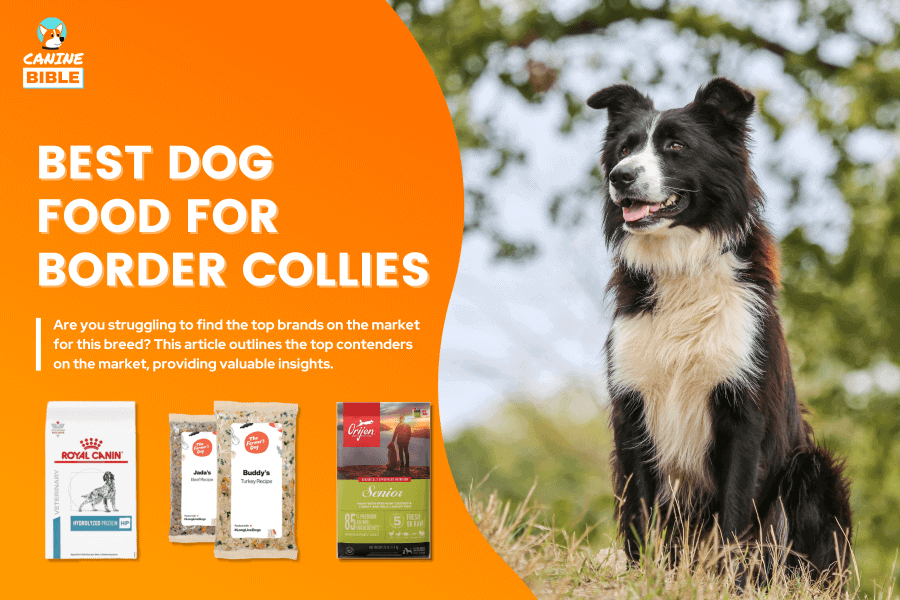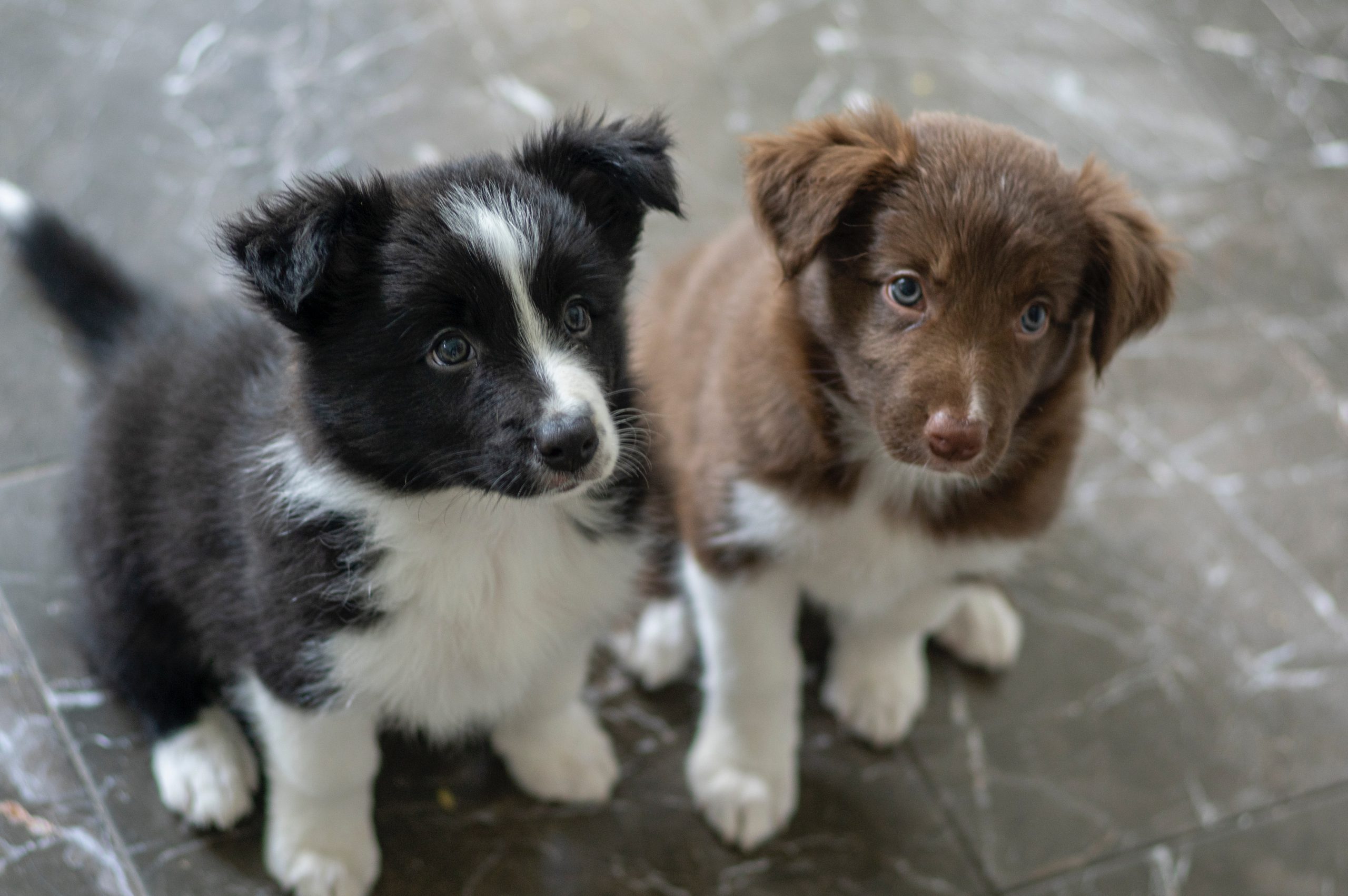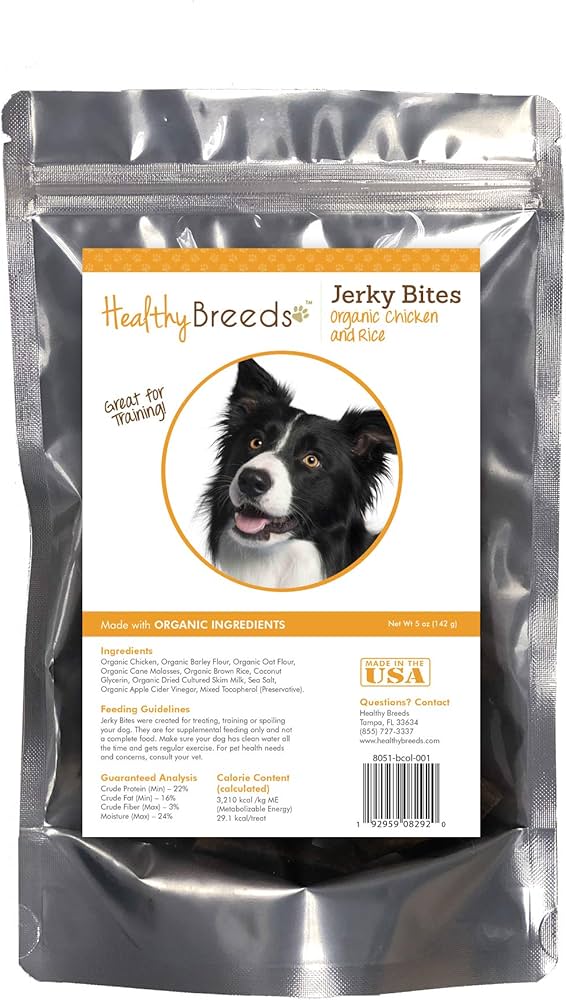Choosing the best diet for a Border Collie puppy is crucial. It ensures their growth and health.
Border Collies are active and intelligent dogs. Their diet needs to support their energy and brain development. Puppies, in particular, require a balanced diet for strong bones, muscles, and overall well-being. The right food helps prevent health issues later in life.
Many pet owners find it challenging to select the best diet due to the variety of options available. Understanding your Border Collie puppy’s nutritional needs can make this easier. In this post, we will explore the best diet options for your furry friend. Let’s ensure your puppy grows healthy and happy!

Credit: owcpboston.com
Nutritional Needs
Border Collie puppies are energetic and intelligent. Their nutritional needs are vital for their growth and development. A proper diet ensures they grow strong and healthy. Let’s explore the key aspects of their nutritional needs.
Essential Nutrients
Border Collie puppies need high-quality protein for muscle growth. Chicken, beef, and fish are excellent sources. Healthy fats are also important. They provide energy and help with brain development. Include fish oil and flaxseed in their diet.
Vitamins and minerals are crucial for overall health. Ensure their diet includes calcium for strong bones. Vitamin D helps with calcium absorption. Omega-3 and Omega-6 fatty acids support a healthy coat. Fiber aids in digestion and keeps their gut healthy.
Caloric Requirements
Border Collie puppies require a balanced number of calories. Too many calories can cause obesity. Too few can stunt growth. Follow the feeding guidelines on puppy food packages. Adjust portions based on their activity level.
Divide their daily food into several small meals. Puppies need frequent feeding for steady energy. Monitor their weight and adjust their diet as they grow. Consult your vet for personalized advice.
Types Of Dog Food
Choosing the right diet for your Border Collie puppy is crucial. It affects their growth, energy, and overall health. Understanding the types of dog food available helps in making the best choice. Below, we explore two main types of dog food: Dry Kibble and Wet Food.
Dry Kibble
Dry kibble is a popular choice for many dog owners. It offers several benefits:
- Easy to store and serve
- Promotes dental health
- Cost-effective
Dry kibble is made from a mix of ingredients. These include meat, grains, and vegetables. Manufacturers bake these ingredients into small, hard pieces. These pieces help to clean your puppy’s teeth as they chew.
When selecting dry kibble, look for options with high-quality protein. The first ingredient should be meat or fish. Avoid kibble with fillers like corn or soy.
Wet Food
Wet food, also known as canned food, has a higher moisture content. This can be beneficial for puppies. Here are some advantages:
- More palatable and appealing
- High water content aids hydration
- Often contains fewer preservatives
Wet food is made by mixing ingredients and cooking them at high temperatures. This process sterilizes the food, making it safe. The texture is softer, which can be easier for puppies to eat.
When choosing wet food, check for high-quality ingredients. Ensure it contains real meat and vegetables. Avoid products with artificial colors or flavors.
Here is a quick comparison:
| Feature | Dry Kibble | Wet Food |
|---|---|---|
| Storage | Easy | Needs refrigeration after opening |
| Cost | Less expensive | More expensive |
| Moisture Content | Low | High |
| Palatability | Less appealing | More appealing |
| Dental Health | Helps clean teeth | No dental benefits |
Homemade Diet
Feeding your Border Collie puppy a homemade diet can be rewarding. You control the ingredients and ensure they are fresh. This approach helps you avoid additives and preservatives. Your puppy gets balanced nutrition tailored to its needs.
Pros And Cons
There are several pros to a homemade diet. You know exactly what your puppy is eating. Fresh ingredients can improve your puppy’s health. You can tailor meals for specific dietary needs.
There are also some cons. Preparing homemade meals can be time-consuming. Ensuring a balanced diet requires knowledge and effort. Mistakes can lead to nutritional deficiencies. Consulting a vet is essential to avoid these issues.
Recipe Ideas
Here are some simple and nutritious recipe ideas. A chicken and rice mix is a great start. Boil chicken breast and cook rice. Mix them together with some cooked vegetables.
Another option is a beef and vegetable stew. Use lean ground beef and cook it thoroughly. Add carrots, peas, and sweet potatoes. Simmer until all ingredients are tender.
For a balanced meal, include protein, carbohydrates, and vegetables. Always consult your vet before making dietary changes. This ensures your puppy gets all necessary nutrients.
Feeding Schedule
Creating a proper feeding schedule for your Border Collie puppy is crucial. It helps in their growth, energy levels, and overall health. Consistency is key to ensuring they get the right nutrients at the right times. This guide will walk you through the best practices for feeding frequency and portion sizes.
Frequency
Border Collie puppies need frequent meals. At 8-12 weeks, feed them four times daily. This helps their small stomachs digest food efficiently. From 3-6 months, reduce to three meals a day. After six months, two meals a day is sufficient.
Portion Sizes
Proper portion sizes depend on the puppy’s age and weight. For a young puppy, 1/2 to 1 cup per meal is ideal. As they grow, gradually increase the portion size. By six months, they should eat 1 to 1.5 cups per meal. Monitor their weight and adjust portions as needed.
Special Dietary Needs
Border Collie puppies have special dietary needs. Their high energy levels demand a balanced diet. Proper nutrition ensures they grow strong and healthy.
Understanding their unique needs is crucial. Puppies can have allergies or sensitive stomachs. Addressing these issues early helps prevent future problems.
Allergies
Some Border Collie puppies may develop allergies. Common allergens include certain proteins or grains. Symptoms often include itchy skin or digestive issues.
Identifying the allergen is essential. Try an elimination diet to pinpoint the cause. Choose hypoallergenic food options. These foods minimize the risk of allergic reactions.
Sensitive Stomach
Border Collie puppies may have sensitive stomachs. Symptoms include diarrhea, vomiting, or gas. A gentle diet can help manage these issues.
Choose easily digestible foods. Opt for high-quality proteins and limited ingredients. Avoid artificial additives and fillers. These can upset your puppy’s stomach.

Credit: www.bil-jac.com
Treats And Snacks
Treats and snacks are essential for training and rewarding your Border Collie puppy. They help reinforce positive behavior and create a bond between you and your pup. Choosing the right treats ensures your puppy remains healthy and happy.
Healthy Options
Choose natural treats for your Border Collie puppy. Fresh fruits like blueberries and apple slices are great. Remove any seeds before giving them. Vegetables such as carrots and green beans are also good choices. They are low in calories and rich in vitamins.
Consider lean meats like chicken or turkey. Cook them thoroughly and cut into small pieces. Avoid seasoning or spices. Commercial treats can be healthy too. Look for those with high-quality ingredients and no artificial additives.
Foods To Avoid
Some foods are dangerous for Border Collie puppies. Avoid giving them chocolate, grapes, and raisins. These can cause serious health issues. Do not give them onions or garlic. They can damage your puppy’s red blood cells.
Skip fatty and salty snacks. They can lead to obesity and heart problems. Be cautious with bones. Cooked bones can splinter and cause injuries. Stick to safe, vet-approved options.
Transitioning Food
Feeding a Border Collie puppy requires high-quality puppy food rich in protein and fat. Gradually introduce new foods to avoid digestive issues. Balance nutrients to support growth and energy needs.
Transitioning food for your Border Collie puppy is essential. This process ensures they adjust well and stay healthy. It involves introducing new food gradually. Monitoring their reactions helps prevent any digestive issues. Let’s break down this process.Gradual Change
Start by mixing a small amount of new food with their current food. Over a week, slowly increase the new food portion. This helps their digestive system adapt. The gradual change reduces the risk of upset stomachs. Puppies can be sensitive to sudden changes.Day 1-2: 75% old food, 25% new food.
Day 3-4: 50% old food, 50% new food.
Day 5-6: 25% old food, 75% new food.
Day 7: 100% new food.
A slow transition helps them adjust smoothly. This method is gentle on their stomachs.Monitoring Reactions
Watch your puppy’s behavior and health. Look for signs of discomfort or allergies. Common signs include diarrhea, vomiting, or excessive scratching. If any of these occur, slow down the transition. Check their stool consistency. A healthy stool is firm and moist. Changes in stool can indicate issues. Keep an eye on their energy levels. They should remain playful and active. If they seem lethargic, consult your vet. Regular monitoring ensures your puppy stays happy and healthy.
Credit: dogtime.com
Common Mistakes
Feeding your Border Collie puppy correctly is essential for its growth and health. Many new pet owners make common mistakes that can affect their puppy’s well-being. Learning about these mistakes can help you provide the best diet for your furry friend.
Overfeeding
Many pet owners overfeed their Border Collie puppies. This can lead to obesity and joint problems. Puppies need the right amount of food to grow healthily. Follow the feeding guidelines on the dog food package. Adjust the portions based on your puppy’s age, weight, and activity level.
Here’s a simple feeding schedule to follow:
| Age | Meals Per Day |
|---|---|
| 8-12 weeks | 4 |
| 3-6 months | 3 |
| 6-12 months | 2 |
Nutrient Imbalance
Another common mistake is not providing a balanced diet. Puppies need a mix of proteins, fats, and carbohydrates. Border Collie puppies are very active and need more energy. A diet lacking in any of these nutrients can cause health issues.
Ensure your puppy’s food has:
- High-quality protein sources like chicken or lamb.
- Healthy fats for energy and coat health.
- Essential vitamins and minerals.
Avoid foods with too many fillers or artificial ingredients. Consult your vet for the best food choices.
Frequently Asked Questions
What Is The Best Diet For A Border Collie Puppy?
A balanced diet with high-quality protein, healthy fats, and essential vitamins and minerals is best. Ensure it includes lean meats, fish, vegetables, and grains.
How Often Should I Feed My Border Collie Puppy?
Feed your Border Collie puppy three to four times a day. Gradually reduce to two meals a day as they grow.
Can Border Collie Puppies Eat Human Food?
Avoid feeding them human food. Stick to specially formulated puppy food. Some human foods can be toxic or harmful.
What Foods Are Toxic To Border Collie Puppies?
Foods like chocolate, grapes, onions, garlic, and caffeine are toxic. Always keep these away from your puppy.
Conclusion
Choosing the best diet for your Border Collie puppy is crucial. Proper nutrition supports healthy growth and energy. Balance protein, fats, and carbs for optimal health. Fresh water is also essential. Monitor your puppy’s weight and adjust food portions as needed.
Consult your vet for personalized advice. A healthy diet leads to a happy, active puppy. Prioritize good nutrition now for lifelong benefits.
